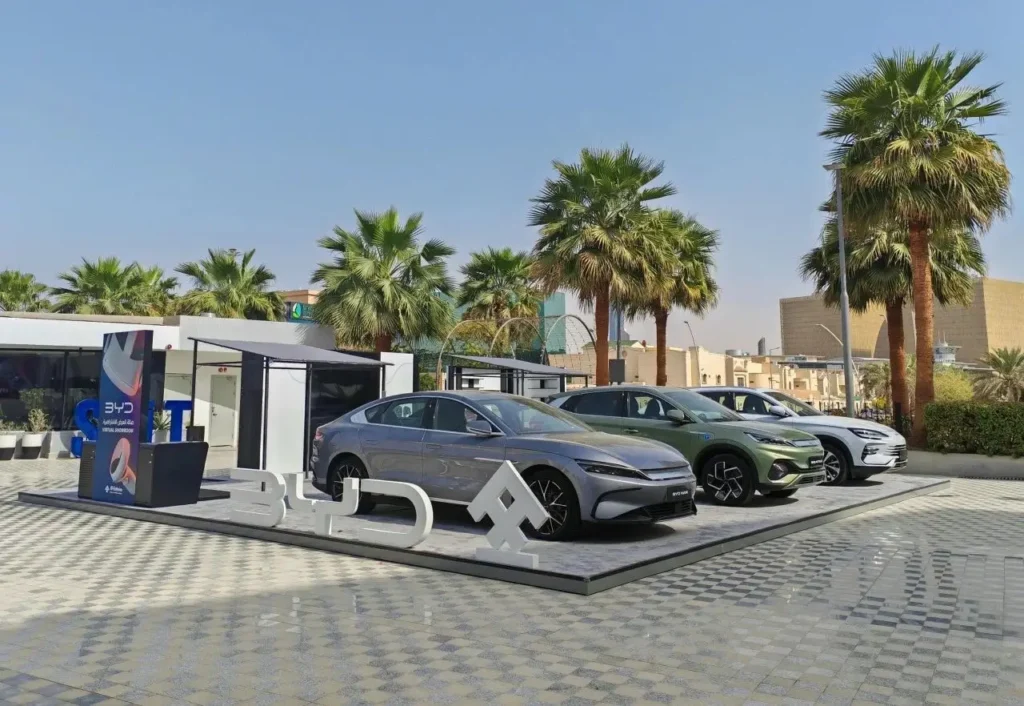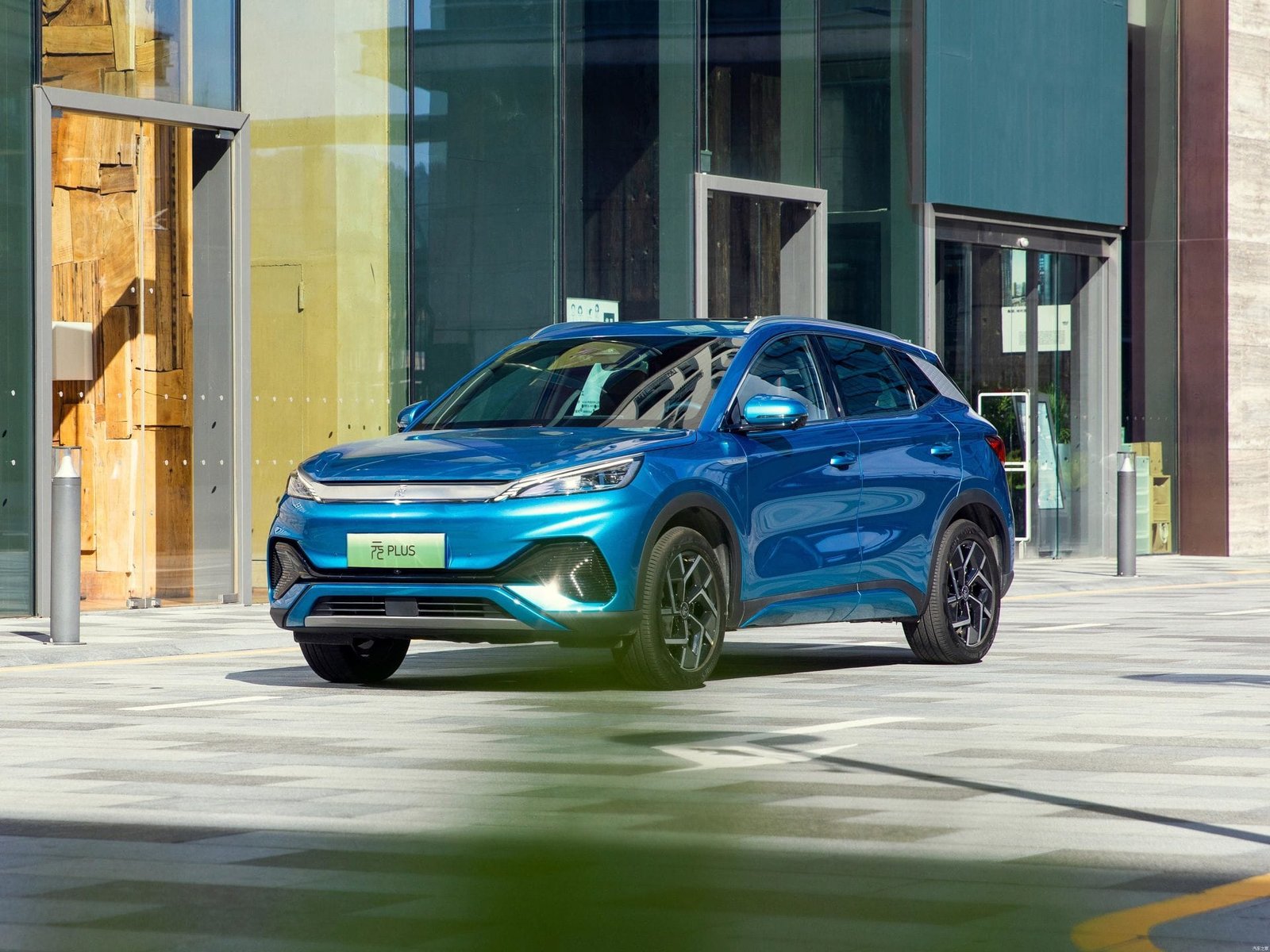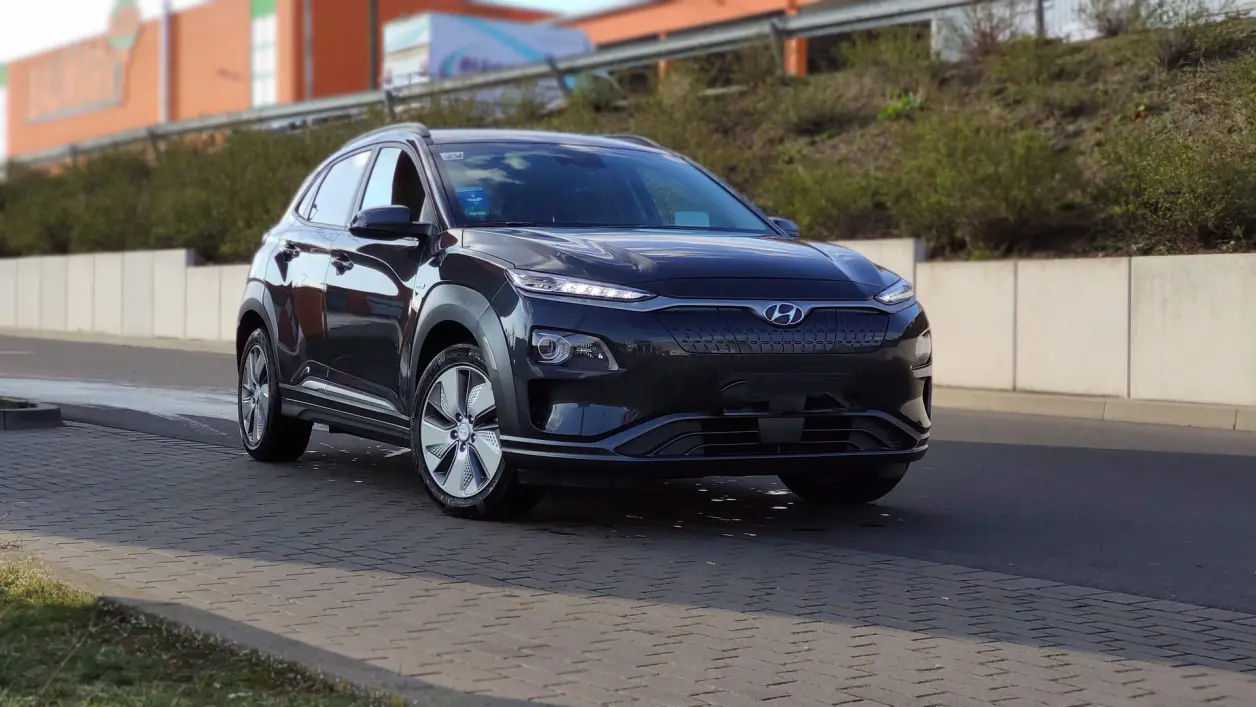1. Saudi Arabia New Energy Electric Vehicle and Charging Pile Market Analysis
As an important player in the global energy market, Saudi Arabia has made significant progress in the field of new energy electric vehicles and charging piles in recent years. With the global emphasis on sustainable development, the Saudi government is actively promoting the popularity of electric vehicles (EVs) and stimulating market growth through a series of policy measures aimed at diversifying the energy mix. Data shows that EV sales in Saudi Arabia are expected to reach 100,000 units by 2025, with an average annual growth rate of more than 20 per cent. This growth is mainly driven by government policies, technological advancements, and rising environmental awareness among consumers.
Charging infrastructure is key to the popularity of EVs. The Saudi government plans to establish extensive charging networks in major cities and transport hubs to meet the growing demand for EV charging. It is expected that more than 500 public charging stations will be built in Saudi Arabia by 2025, covering major cities and highways across the country. In addition, the installation of private charging posts is gradually increasing, and the government is providing subsidies to individuals and businesses to encourage the installation of charging equipment in homes and commercial premises, thereby enhancing the convenience of using EVs.
The new energy EV market in Saudi Arabia has attracted the participation of many well-known domestic and international automakers. International brands such as Tesla, Nissan, and BMW occupy an important position in the Saudi market, while local companies such as Aljazirah Vehicles Agencies and Saudi Electric Vehicle (SEV) are also accelerating their presence and launching electric vehicle models suitable for the local market. Increased competition in the market is driving technological innovation and product diversification, providing consumers with more choices.
With increasing environmental awareness and government incentives, Saudi consumers’ acceptance of electric vehicles has increased significantly. More and more people are choosing electric vehicles as their daily travelling tools, not only because of their environmental attributes, but also because of their greater advantages in terms of maintenance costs and energy use. In addition, the younger generation in Saudi Arabia is more receptive to new technologies, which has become an important driver for the EV market.
Despite the promising market outlook, the Saudi new energy EV market still faces some challenges. The first is the uneven layout of charging piles, with insufficient charging facilities in some remote areas. Secondly, the overall battery technology still needs time to improve, and the range and charging speed of EVs need to be further improved. Finally, consumer awareness and acceptance of EVs need to be continuously improved, and the government and enterprises need to increase consumer confidence through publicity, education and practical experience.
Overall, Saudi Arabia’s new energy electric vehicle and charging pile market is in a stage of rapid development, with policy support, technological advances and continued growth in market demand, the future outlook is very optimistic.

2. Saudi Arabia new energy electric vehicle and charging pile industry segmentation
Saudi Arabia’s new energy electric vehicle and charging pile industry covers a number of segments, each of which plays an important role in the market and promotes the booming development of the whole industry. The following is a detailed breakdown by type:
Electric Vehicle Manufacturing
Passenger Electric Vehicles : There is a growing demand for passenger electric vehicles in the Saudi market. International brands such as Tesla, Nissan, and BMW are dominating the market, while local players such as Aljazirah Vehicles Agencies and Saudi Electric Vehicle (SEV) are accelerating the development and launch of electric models suited to local needs.
Commercial Electric Vehicles (EVs): These include electric vans and electric buses. With increasingly stringent environmental regulations, the commercial EV market is also expanding rapidly, especially in the public transport and logistics sectors.
Charging Facilities
Public charging stations: The Saudi government plans to build a large number of public charging stations in major cities and along highways, with over 500 charging stations to be built by 2025.
Private charging stations: The government provides financial subsidies for the installation of private charging stations in homes and commercial premises to promote the popularity of private charging facilities.
Supporting Facilities and Services
EV Repair and Maintenance: As the number of EVs increases, so does the demand for EV repair and maintenance services. Several automotive repair and service centres are expanding their EV service business.
Charging Station Operation and Maintenance: Operation and maintenance of charging stations is a key component to ensure efficient operation of charging networks. Several companies provide professional charging station operation and maintenance services.
Electric Vehicle Rental and Sharing: Electric vehicle rental and sharing services are emerging in Saudi Arabia, providing citizens with convenient travelling options.
Energy Management
Smart grid technology: The application of smart grid technology makes EV charging more efficient and reliable, and optimises the distribution and use of electricity.
Energy storage system: The energy storage system plays a role in balancing power demand during EV charging and improves energy utilisation efficiency.
3. Saudi Arabia new energy electric vehicle and charging pile government policy
2030 Vision Plan
Clearly sets out the goal of promoting new energy electric vehicles in the transport sector.
Emphasises the development of renewable energy and electric vehicles to achieve economic transformation and environmental protection.
Sets a target of deploying 500,000 charging piles by 2030 nationwide.
Vehicle Purchase Incentives
Provide car purchase subsidies to reduce the cost of purchasing electric vehicles.
Tax relief policies to exempt EV registration fees and related taxes.
Low-interest loan support to increase public acceptance of EVs.
Infrastructure Development
Actively co-operate with private enterprises to promote the installation and operation of charging piles.
Introduce internationally renowned charging equipment suppliers to enhance the efficiency of charging services.
Public-private partnership model to accelerate charging network construction and create more business opportunities.
Investment in R&D
Strengthen R&D investment in the EV sector and set up a special fund to support technological innovation.
Encourage local enterprises and research organisations to jointly develop electric vehicles and related technologies.
Enhance the industry’s independent innovation capability and promote technological progress.
Market Regulation and Standard Setting
Formulate relevant industry standards and specifications for electric vehicles and charging piles.
Strengthen market regulation to ensure the safety and reliability of EVs.
Guiding the healthy development of the market through policies and safeguarding consumer rights and interests.
In summary, Saudi Arabia’s policies in the field of new energy electric vehicles and charging piles cover economic, environmental, market and technology aspects, aiming to promote the rapid development of the electric vehicle industry and facilitate the realisation of sustainable development goals.

4. Saudi Arabia new energy electric vehicle and charging pile market trends
In recent years, the new energy electric vehicle and charging pile market in Saudi Arabia has shown a strong growth trend. With consumers’ emphasis on environmental protection and energy saving, the demand for electric vehicles is increasing. Government policy support and incentives are attracting more and more consumers to switch to electric vehicles, thus driving the market size. In particular, the Saudi government’s plan to deploy 500,000 charging posts across the country to meet the growing demand for electric vehicles has further contributed to the improvement of charging infrastructure.
The construction of the charging network has benefited from the promotion of the public-private partnership (PPP) model, which not only enhances the convenience of charging, but also improves the user experience. Meanwhile, the continuous advancement of new energy EV technologies, such as battery technology, drive systems and smart charging solutions, has fuelled technological innovation in the market. Co-operation between local Saudi companies and international technology providers has boosted the research and development of EV and charging technologies, enhancing the competitiveness of the market.
In addition, Saudi Arabia is working to establish a local EV manufacturing industry to reduce its dependence on imported EVs. The government provides funding, policy and technical guidance to local manufacturing enterprises to promote the development of the EV industry chain. Meanwhile, growing public concern for environmental protection and sustainable transport has boosted the market acceptance of EVs. Educational and promotional activities have given consumers a clearer understanding of the advantages of EVs, which in turn has fuelled sales growth.
At the international level, Saudi Arabia has been actively attracting foreign investment, especially in the field of electric vehicles and charging infrastructure, with international car manufacturers and charging equipment suppliers entering the Saudi market, bringing with them advanced technology and management experience. The government has also continued to improve policies and regulations related to electric vehicles and charging piles to ensure the healthy development of the market. It ensures the safety and reliability of EVs by setting industry standards and regulatory measures, thus enhancing consumer trust.
5. Overview of Saudi Arabia’s New Energy EV and Charging Pile Industry
Saudi Arabia’s new energy electric vehicle and charging pile industry is in a stage of rapid development. As the world’s largest oil producer, Saudi Arabia is aware of the limitations of relying on traditional energy sources and is actively promoting economic diversification and sustainable development. Therefore, the EV industry, as an important part of the country’s economic transformation, is highly valued by the government.
Firstly, the EV market in Saudi Arabia is experiencing significant growth. In recent years, sales of EVs have continued to rise, attracting the attention of domestic and foreign automakers. The Saudi government has adopted a series of policy measures to encourage the production and sale of EVs. For example, in its ‘Vision 2030’ plan, Saudi Arabia has set a specific target to achieve the popularisation of EVs by 2030, with the aim of increasing the share of EVs in the overall automotive market.
Secondly, the construction of charging infrastructure is a key link in promoting the development of the EV industry. The Saudi government plans to deploy 500,000 charging posts nationwide to ensure that EV users can charge conveniently and quickly. The construction of the charging network not only relies on government investment, but also attracts the participation of the private sector, which facilitates the rapid rollout of charging facilities through the public-private partnership model. This will greatly alleviate EV users’ concerns about the convenience of charging and enhance their experience.
On the technology front, Saudi Arabia is also actively catching up with the cutting edge of the global EV industry. The government supports R&D and innovation, and encourages co-operation between local enterprises and international technology providers to promote the development of EVs and related technologies. In recent years, local Saudi enterprises have launched a number of EV models and plan to expand their EV production capacity. This initiative will not only reduce dependence on imported EVs, but also create more jobs in Saudi Arabia.
At the same time, Saudi Arabia’s EV industry faces some challenges. For example, market awareness of EVs is still gradually increasing, and some consumers are sceptical about the performance and charging convenience of EVs. In addition, the standardisation of battery technology and charging facilities needs to be further addressed to ensure the safety and reliability of the charging process.

6. Saudi Arabia’s new energy electric vehicle and charging pile market dynamics
Saudi Arabia’s new energy EVs and charging piles market is experiencing rapid and dynamic development, driven by a variety of factors including government policies, market demand, technological advancements, and rising social awareness. These dynamics have created a favourable environment for the growth of the EV industry.
Government policy support is an important factor driving market dynamics. The Saudi government has clearly set out the goal of promoting the development of EVs and charging infrastructure in its ‘Vision 2030’, with a plan to achieve the popularisation of EVs by 2030 and the construction of 500,000 charging piles. This policy framework provides a clear direction for the EV market and has attracted the attention of investors and automakers. Meanwhile, government incentives such as subsidies and tax breaks for car purchases are further boosting consumers’ willingness to buy.
Growing market demand is also driving the development of electric vehicles and charging piles. With rising environmental awareness and the pursuit of sustainable transport, more and more consumers are paying attention to the environmental performance and economy of EVs. Market research shows that the younger generation is more receptive to EVs, which is expected to drive future sales growth. In addition, the improved range and charging convenience of EVs have boosted consumer confidence.
The pace of construction of charging infrastructure is also an important part of the market dynamics. Collaboration between the Saudi government and private players has accelerated the deployment of charging piles, especially in urban centres and along major traffic arteries. The increasingly dense distribution of charging piles has led to a significant improvement in the charging experience for EV users. According to the latest data, Saudi Arabia has built a sizeable charging network, which will continue to expand in the future to meet the growing demand for EVs.
Technological innovation is also driving the market dynamics. Electric vehicle manufacturers in Saudi Arabia are constantly engaged in technological research and development, aiming to achieve breakthroughs in battery technology, drive systems, and smart charging solutions. Through co-operation with international companies, Saudi Arabia has not only enhanced its local production capacity, but also accelerated the introduction and application of technology. These innovations have provided EVs with higher performance and better user experience.
Competition in the market is also increasing. As more and more international automakers enter the Saudi market, the diversity and competitiveness of EV products have increased significantly. This competition not only drives manufacturers to lower prices and improve product quality, but also accelerates technological progress. Consumers can benefit from it by choosing an EV model that suits their needs.
In Saudi Arabia’s new energy electric vehicle and charging pile market, the market share of each brand is gradually becoming clearer, reflecting changes in the competitive landscape and consumer preferences. With the rapid development of the electric vehicle industry and the continuous improvement of charging infrastructure, several brands have entered the market to capture the share of this emerging segment.
Tesla: Tesla has the highest share of the Saudi electric vehicle market, attracting a large number of high-end consumers with its advanced battery technology and excellent performance. Tesla’s Model 3 and Model Y have performed particularly well in the Saudi market, becoming the first choice for many consumers.

Nissan: Nissan has also gained a high market share through its LEAF range of models. With its relatively affordable prices and good range performance, Nissan has gained a foothold in the mid-range market.
Honda and Hyundai: The EV ranges of these two brands are gradually gaining attention from consumers, with a good reputation for value for money and environmental performance in particular. Models such as Hyundai’s Kona Electric and Honda’s e are gaining market acceptance.
ABB: As a globally renowned electrical equipment manufacturer, ABB has a high market share in the Saudi charging pile market, providing reliable charging solutions with its high-performance charging equipment and extensive service network.
Schneider Electric: Schneider is also prominent in the charging pile market, with its products favoured for their high reliability and intelligent management systems, gradually gaining market share.
Rise of local brands: With the development of the market, more and more local charging pile brands have begun to emerge. These brands have gradually gained a certain share in the local market by taking advantage of government policy support and market demand.




